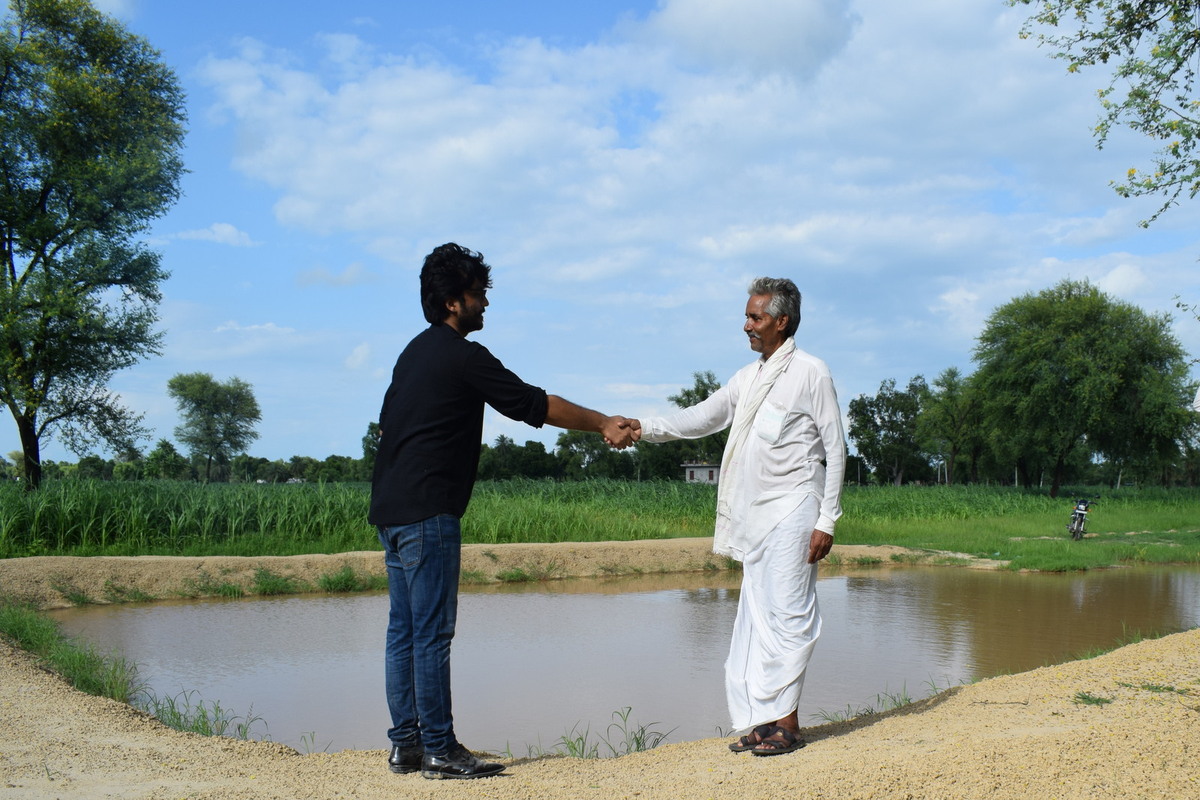An IIT-Kanpur post-graduate, Vipra Goyal, has set an example worth emulating for others by developing a ‘Model Gram Panchayat’ for water conservation in Chareda village of Rajasthan’s Dausa district, benefiting 600 farmers. It could be an ideal solution to the water woes of India’s 2.53 lakh gram panchayats (GPs) lying in 250 districts that have been declared as dark zones in terms of ground water exploitation.
Chareda Gram Panchayat is one of 2.53 lakh gram panchayats of India lying in one of the dark zone declared districts of Rajasthan. Here, farmers were earlier dependent completely on the monsoons for their Kharif crop with an average of Rs 20,000 per hectare as household annual returns. Because of excessive utilisation of groundwater through tube wells and flood irrigation for the last 40 years, the groundwater level has declined up to 900-1200 feet in the gram panchayat and has become unfit for irrigation due to contamination.
Advertisement
Interacting with SNS here on Thursday, Vipra Goyal, IITian and former National Thematic Expert for Localisation of SDGs in rural India, said that the scarcity of water had pushed 600 farmer households of Chareda Gram Panchayat to extreme poverty and distress. On the other hand, 65 per cent rainwater of this Gram Panchayat flows un-utilized every year, he added.
After leaving a regular job, Vipra visited this gram panchayat in November-December, 2020 and decided to make this gram panchayat a model ‘Water Sufficient’ Gram Panchayat for the nation.
Seeing the ‘overexploited groundwater and ‘unutilized rainwater flowing waste from the panchayat, he came up with the idea of shifting farmers to farm ponds. A farm pond is a 10-20 feet deep pond, constructed on 5 percent land of the farmer at the end of the slope of his or her farm. This farm pond conserves rainwater irrigation for the winter and summer crops.
Convincing 600 farmers to keep 5 percent of land for constructing farm ponds was not at all easy. Vipra ran the People’s Plan Campaign as per the guidelines of the Union Ministry of Panchayati Raj in which various activities like Ward Sabhas, Gram Sabhas, Camel-Cart rallies, door-to-door surveys with pamphlet distribution, etc., were carried out for almost two months, November-December 2020. As a result, the gram panchayat on January 2, 2021 took a decision to become ‘Water Sufficient GP’ by keeping 5 per cent land for the construction of farm ponds.
These 10 farm ponds have been dug with the kind financial support of Savji Bhai Dholakia, founder-chairman of Hari Krishna Exports, and without any financial contribution from the farmer. It takes around Rs 1.5 lakh to dig a farm pond.
“All these 10 farm ponds (with 85 lakh liter water conservation capacity) are filled with this year’s rain water only as planned. This has spurred strong hopes in the hearts of the benefitted farmers of this Gram Panchayat who now would be able to take 3-crops in a year, almost doubling their net farm income,” claimed Vipra.
Waterman Vipra also envisions facilitating the development of 30,000 Gram Panchayats every year (out of 2.53 lakh Gram Panchayats) on the basis of this model from next year itself with the convergence of government schemes like Jal, Jeevan Mission (JJM), Pradhan Mantri Krishi Sinchai Yojana (PMKSY), central finance grants to panchayats and MGNREGS.











